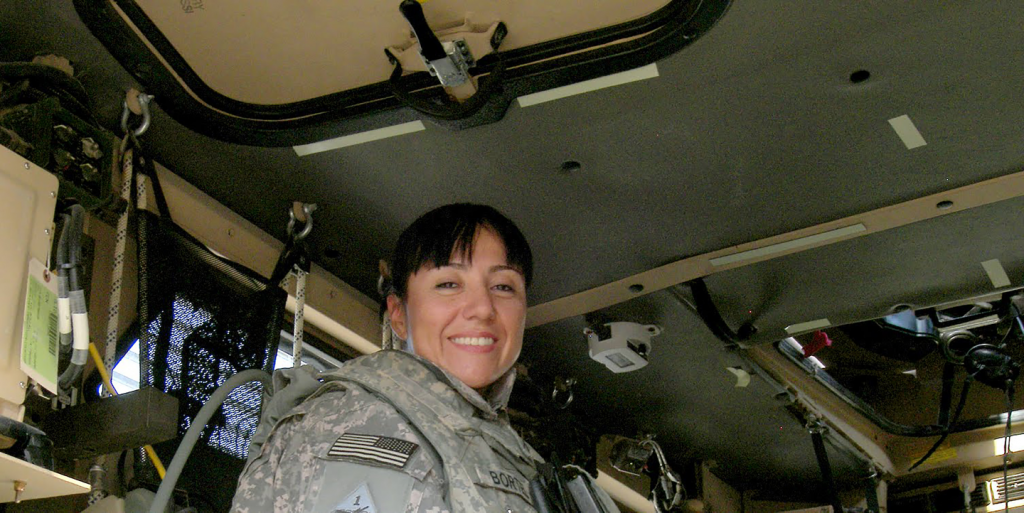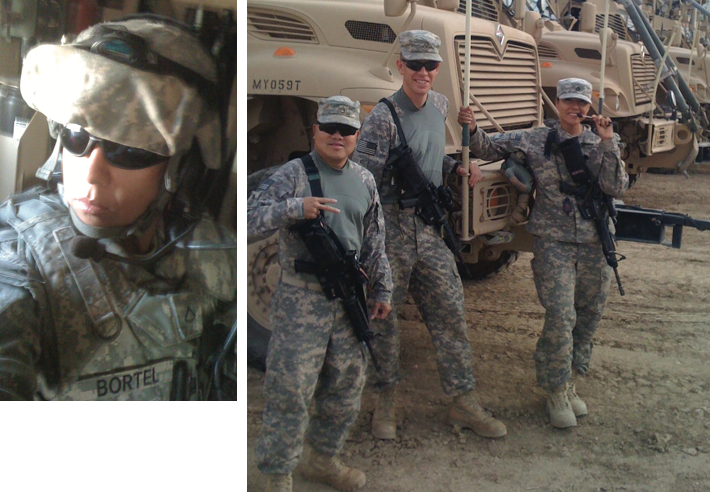When Perla Bortel decided to enlist in the Army, she aspired to a long and fulfilling military career. Her dream was to serve her country as well as her fellow soldiers, so she joined as a combat medic specialist. She served in the elite military police unit and rose
to the rank of sergeant.
By definition, the role of a combat medic specialist is a physically and emotionally demanding one. It requires 10 weeks of basic training as well as 16 weeks of advanced individual training. The combat medic specialist is often the first contact for service members upon injury on the front lines. They offer not only health care but also emotional support and, if required, evacuation from battlefield or point of injury. Bortel embraced the opportunity to serve as a combat medic. She was especially proud to serve in the distinguished military police unit.
She proudly deployed to the combat zone of Iraq as well as to Germany, Hungary, and Romania to serve her fellow service members.
But, slowly but surely, the numerous injuries that she incurred while performing military duties began to seriously impede her ability to perform as a combat medic specialist. During basic training, Bortel had an accident and injured her shoulder. This injury led to several other debilitating conditions that ultimately resulted in several surgeries. Unfortunately, the surgeries were not successful and led to other complications, including adhesive capsulitis. Then, during nighttime training to obtain an expert medical field badge, Bortel suffered a devastating injury, tearing three tendons in her ankle. Undeterred, she continued to serve despite excruciating pain in her ankle. In an attempt to rid herself of ankle pain, she underwent multiple surgeries.

Unfortunately, despite her desire to serve, the Army referred her to its Disability Evaluation Process, where the Physical Evaluation Board (PEB) determined that Bortel’s shoulder disability rendered her unfit for continued service. She could no longer expect to help other injured soldiers. To have her dream of a military career cut short was difficult. But even worse, she realized that when she ultimately had to transition into civilian life, her serious chronic medical conditions would block her from being employed as a nurse — which had been her ultimate goal. Moreover, to Bortel’s dismay, the PEB failed to find her ankle disability unfitting, denying her a disability retirement. Disability retirement status provides lifetime military medical care for her and her spouse, lifetime retirement pay, and access to military bases and commissary privileges. Instead, the PEB’s decision entitled her to only a one-time severance payment and no ongoing military benefits.
Bortel was told that she could appeal the PEB’s decision and attempted to navigate the appeals process herself, but she was overwhelmed. “It was so complicated and full of terms I could not understand,” said Bortel. “The process itself is really stressful. Just picture that your life is going to change completely. And you haven’t planned on that. All your goals and dreams no more.” Desperate for assistance, Bortel reached out to NVLSP and asked us to take her case. “NVLSP is something that people like me need. They know everything,” said Bortel. “They make you feel better going through a tough process.”
Though she was stationed in Germany, NVLSP was able to assist her. NVLSP placed her case with Latham & Watkins attorneys Allen Gardner and Justin Kirschner. With less than a month to prepare for an appeal to the Formal Physical Evaluation Board, Gardner and Kirschner had their work cut out for them in a compressed time frame. Gardner and Kirschner, with the assistance of NVLSP staff attorney Esther Leibfarth, prepared a top-notch legal defense to add Bortel’s ankle disability as unfitting and to secure Bortel the necessary 30 percent disability rating to qualify for permanent medical retirement based on her extensive ankle and shoulder injuries.
According to Bortel, “NVLSP was amazing.” She credits Gardner and Kirschner, her pro-bono attorneys, with giving her back her confidence about her future. “Justin answered all the questions I had. He was on top of things.
“I felt really confident about the future and the process. I didn’t have the stress about what was going to happen later. They already told me how everything was going to be laid out. They told me how they were going to be presenting. They prepared me really well.
“They knew everything about the process. It was not difficult for me to trust them.” Bortel concluded, “If not for NVLSP, right now I would be totally devastated.”
“If not for NVLSP, right now I would be totally devastated. I wouldn’t know what to do.”


